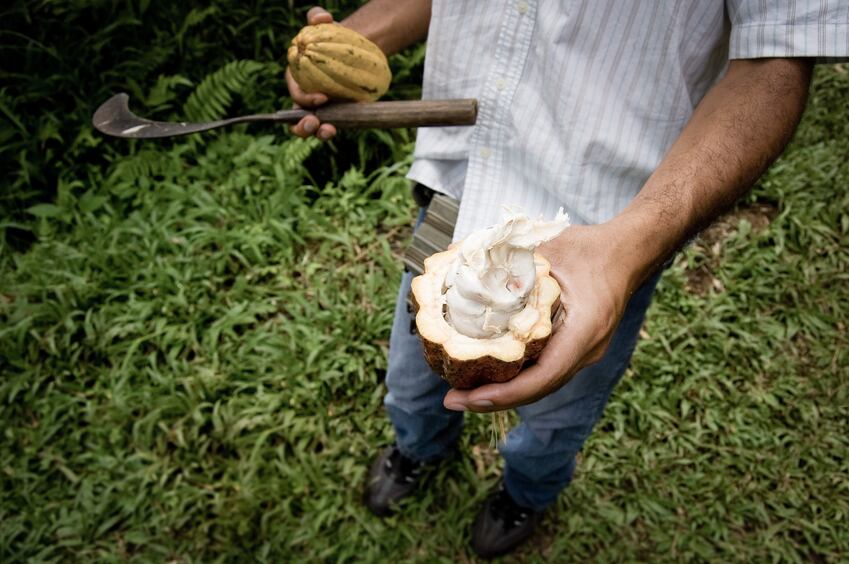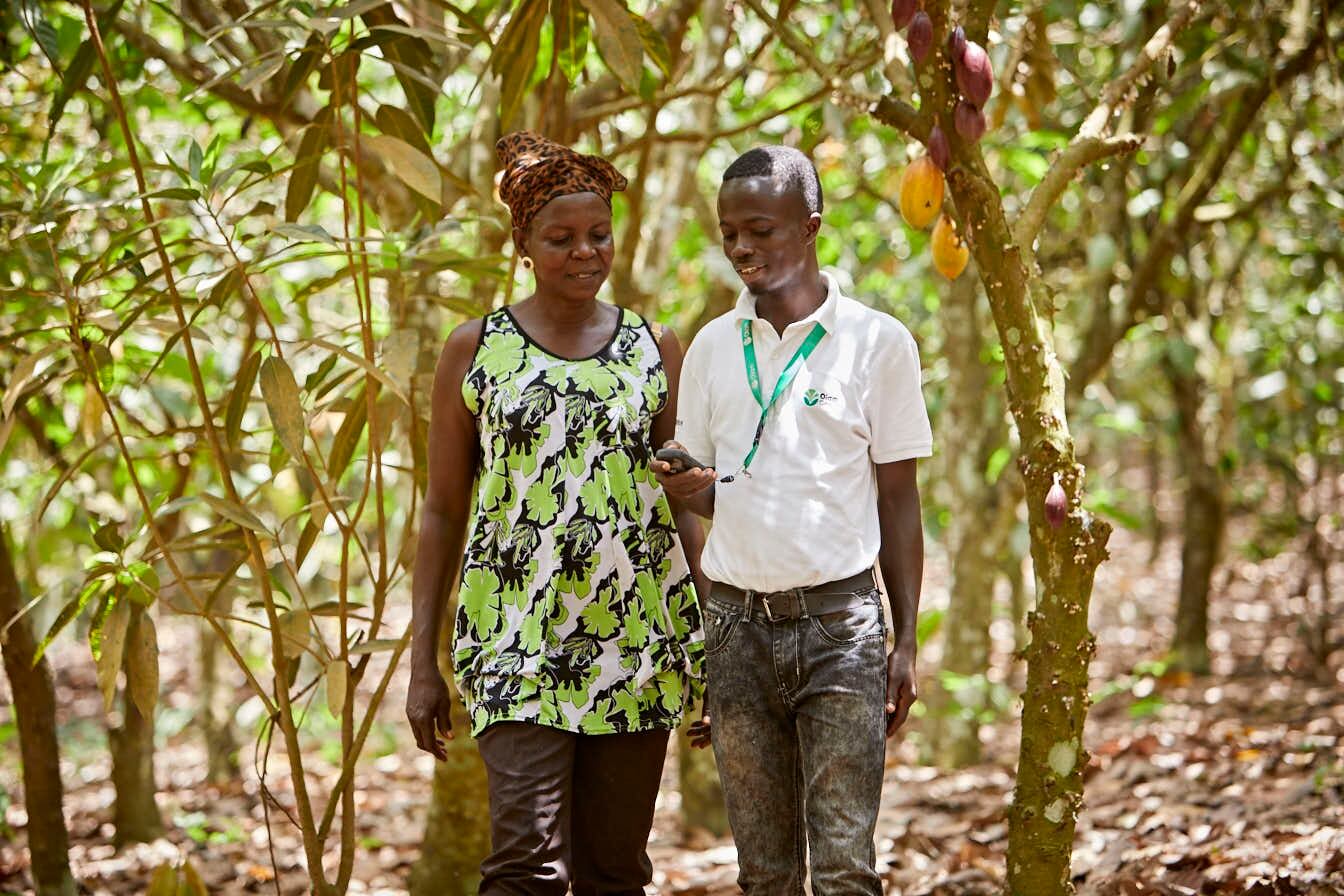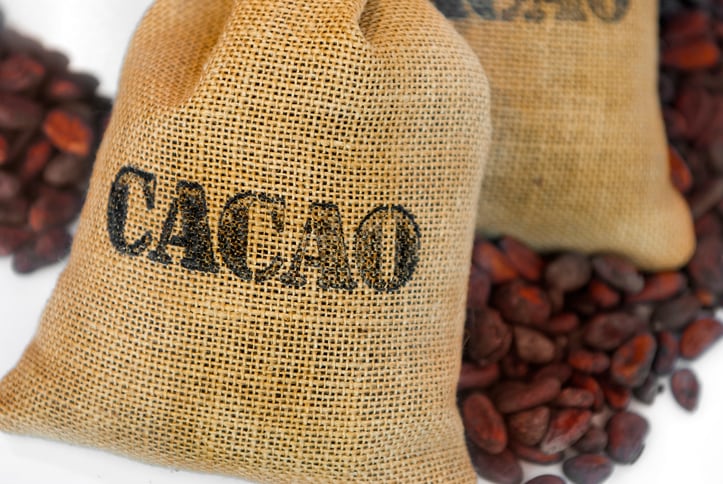Olam Cocoa, a fully integrated cocoa supplier, has been present in Africa for almost 30 years. The group’s African footprint spans Côte d’Ivoire, Ghana and Nigeria in West Africa, Cameroon and Republic of Congo (Brazzaville) in Central Africa and Tanzania and Uganda in East Africa.
According to the company’s sustainability director, the majority of cocoa it sources in the region is destined for export markets. “As of yet there is not a big local market for cocoa ingredients in origin countries, with much of global cocoa ingredients demand driven by North America, Europe and increasingly Asia,” Brooks explained.
Africa produces almost 70% of the world's cocoa crop. In 2015/2016, the production of cocoa beans in Africa amounted to some 2.91 million metric tons, more than half of which, 1.58 million tons, was produced on the Ivory Coast.
As a result, much of the cocoa grown in Africa is sent to processing facilities that are closer to Olam’s consumption markets, such as the Netherlands and US. The company does, however, have two processing plants in Côte d’Ivoire and one in Ghana. Brooks believes that this local processing presence delivers a number of benefits.
“Establishing processing operations closer to the farm-gate has many benefits and enables Olam Cocoa to better manage our integrated supply chain as we accelerate progress towards the goal of 100% traceable and sustainable cocoa volumes from our direct supply chain by 2020.
“Additionally, we can enhance reliability and efficiency through reduction of costs associated with transport and storage, while also providing a visible, consistent market for cocoa growing communities and create local employment, including highly skilled roles such as engineers, R&D technicians, finance and administration managers, on-site nurses, as well as HR and IT professionals,” he told FoodNavigator.
‘Without thriving communities the future of cocoa is stark’

In addition to Africa, Olam sources cocoa in Asia and Latin America. The company works with a "growing" network of around 650,000 smallholder farmers.
Olam’s long history in the African region – where Brooks said it has had a “consistent presence” for 29 years – has enabled the group to grow the “largest network of smallholder farmers in Africa”.
It has also helped the group develop a “deep understanding of” of the commercial risks of operating in the region. These include “fluctuating currencies and poor infrastructure”, Brooks observed.
“It has also driven our long-term approach in investment across our African operations including, importantly, in the communities from which we source to help tackle economic, environmental and social challenges through the Olam Livelihood Charter (OLC),” Brooks explained.
Supporting the cocoa farming communities is a key aspect of Olam’s approach to cocoa sourcing and sustainability. “As part of the OLC, we invest in social infrastructure like school building to ensure the communities where our farmers live can thrive,” Brooks said. “We provide holistic economic, social and environmental support to smallholder cocoa farmers.”
Olam’s methodology is organised around eight core principles: provision of finance; improved yield; good labour practices; market access; quality; traceability; social investment and reduced environmental impact.
The African region is facing some significant challenges in these areas but Olam believes its sourcing strategy and the support it provides farmers with can be part of the solution. “These programmes help tackle a range of issues from challenges such as lack of farmer’ financial inclusion to deforestation and child labour in the cocoa supply chain.
"Cocoa farmers are our most important stakeholder, and without thriving growing communities, the future of the cocoa industry is stark, so our sustainability programmes are carefully considered, designed to deliver long-term value across the entire cocoa supply chain,” the sustainability chief insisted.
Agri-tech driving progress
Olam is looking to technology to help it solve some of the logistical challenges presented by conditions in the region. The company is deepening its relationship with suppliers through initiatives like Olam Direct.
Brooks elaborates: “Limited infrastructure is a considerable challenge in many of the countries in which we source and process cocoa, compounded by the sheer number of cocoa farmers living in remote regions. Therefore, poor infrastructure is not simply an issue for our own logistical considerations but for farmers who face difficulties getting their crop to market. Through digital infrastructure such as Olam Direct, we can help connect farmers with Olam Cocoa and the wider market, enabling them to check the cocoa price online, indicate intent and transact with us.”
Cutting edge developments in agri-tech are also enabling the company to promote more sustainable agricultural practices and maximise yields.
The Olam Farmers Information System (OFIS) is a “revolutionary tech innovation” that is “professionalising farmers” through provision of individual farm development plans, Brooks explains.
“Once a farm is GPS mapped, and to this date we have mapped nearly 100,000 cocoa farms across Africa, data like the age of trees and soil type is collected and analysed to provide farmers with tailored advice to help improve yields, specific to each tiny farm.”

The answers are not all high tech, however. The company wants to change farming practices across the region and, to this end, Olam is working to encourage and support the uptake of more sustainable methods, such as cover cropping to increase ground cover, through its ‘good agricultural practices’ coaching.
The commodities giant also hopes to support forest conservation through its Cocoa and Forests Initiative.
Back in 2011, the company first partnered with the Rainforest Alliance in Ghana to produce the “world’s first” climate friendly cocoa. Since then, Olam has focused on improving and increasing production, Brooks revealed.
This includes “specifically teaching farmers how the carbon stocks of cocoa, shade trees and soil can be improved by developing specific farming practices”.
“These enable communities to adapt to the changing climate whilst at the same time mitigate the potential adverse changes. A recent programme, One Acre One Farm, is an innovative new initiative designed to drive farmer behavioural changes and to improve pruning application.
"Instead of creating demo plots to showcase the results of GAP application, we create youth teams to prune one acre of each farmer’s farm with the aim that if the farmer is able to see the results of pruning on his own trees, then he or she is more likely to prune the rest of their farm correctly, and hopefully reap the benefits of improved yields.”

